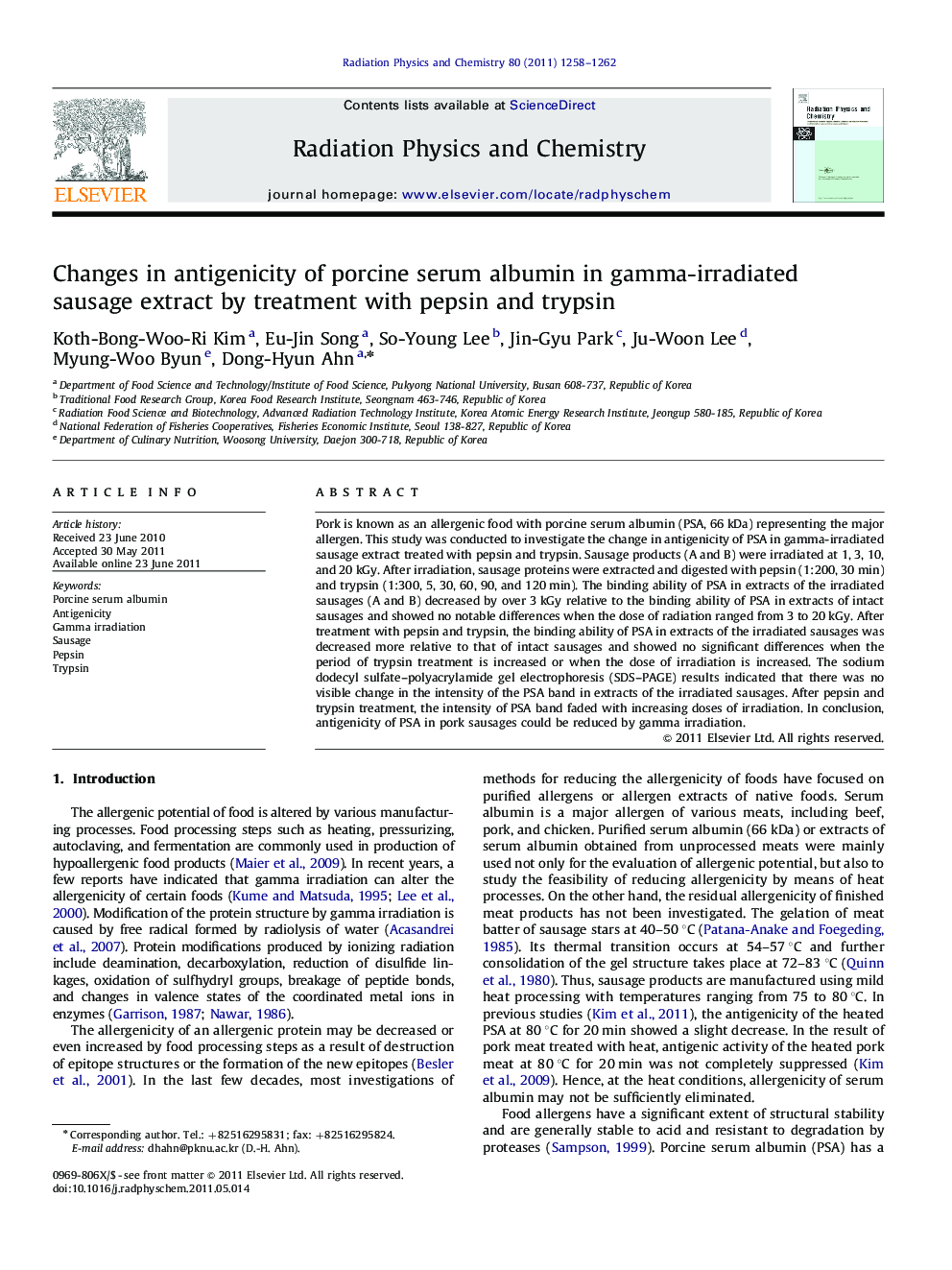| Article ID | Journal | Published Year | Pages | File Type |
|---|---|---|---|---|
| 1891591 | Radiation Physics and Chemistry | 2011 | 5 Pages |
Pork is known as an allergenic food with porcine serum albumin (PSA, 66 kDa) representing the major allergen. This study was conducted to investigate the change in antigenicity of PSA in gamma-irradiated sausage extract treated with pepsin and trypsin. Sausage products (A and B) were irradiated at 1, 3, 10, and 20 kGy. After irradiation, sausage proteins were extracted and digested with pepsin (1:200, 30 min) and trypsin (1:300, 5, 30, 60, 90, and 120 min). The binding ability of PSA in extracts of the irradiated sausages (A and B) decreased by over 3 kGy relative to the binding ability of PSA in extracts of intact sausages and showed no notable differences when the dose of radiation ranged from 3 to 20 kGy. After treatment with pepsin and trypsin, the binding ability of PSA in extracts of the irradiated sausages was decreased more relative to that of intact sausages and showed no significant differences when the period of trypsin treatment is increased or when the dose of irradiation is increased. The sodium dodecyl sulfate–polyacrylamide gel electrophoresis (SDS–PAGE) results indicated that there was no visible change in the intensity of the PSA band in extracts of the irradiated sausages. After pepsin and trypsin treatment, the intensity of PSA band faded with increasing doses of irradiation. In conclusion, antigenicity of PSA in pork sausages could be reduced by gamma irradiation.
► Change in antigenicity of PSA in irradiated sausage extract (ISE) was examined. ► Binding ability of PSA in ISE was decreased compared to intact extract. ► Binding ability of PSA in ISE after enzyme treatments was also further decreased. ► Intensity of PSA band in ISE after enzyme treatments became weak.
